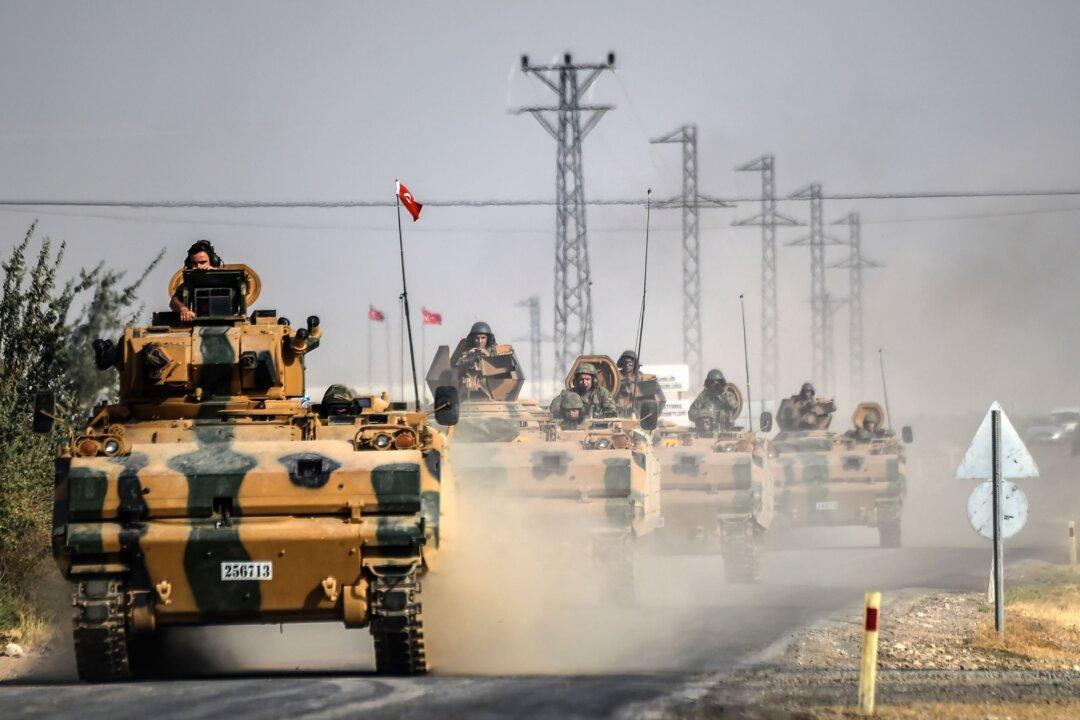Turkey has finally directly entered the Syrian conflict. With support of Turkish tanks, artillery, and fighter jets, some 1,500 fighters of the Free Syrian Army (FSA) have moved in to take over the strategic city of Jarablus, meeting with little resistance from militants of the so-called Islamic State in Iraq and Syria (ISIS).
But the main target of the Turkish intervention is neither the regime of Bashar al-Assad, which Turkey has for the past five years done everything it could to undermine, nor ISIS, which it stood accused of tacitly supporting until recently. The real target of Turkey’s risky intervention in Syria are its longtime foe, the Kurds, who it is desperately trying to prevent from achieving statehood since that would embolden its own Kurdish population in their quest for political and cultural recognition and endanger the unitary nature of its nation-state.
Turkey’s apparent volte-face of realigning its Syria policy with those of Iran and the Assad regime seems dramatic even by Middle Eastern standards of geopolitical flux. Strategically dazzled by the spectacle of the fall of one Arab ruler after another during the height of the Arab Spring, Turkey under President Recep Tayyip Erdogan initially wagered on the rapid collapse of Assad’s Ba'ath regime and threw its political, diplomatic, military, and logistical weight behind the Syrian opposition.

